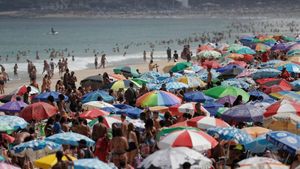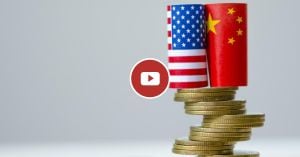On February 11, 2023, prominent Chinese artist and dissident Ai Weiwei found himself denied entry to Switzerland shortly after arriving at Zurich Airport from London. The unexpected incident unfolded as the continent celebrated its cultural diversity, highlighting the tensions often linked to political figures and dissidents.
After landing, Ai was informed by the local authorities he lacked the appropriate travel documents required for entry, which left him holed up at the airport awaiting his return flight. Echoing his trademark defiance, Ai took to social media to broadcast his ordeal live. "I will sleep tonight on a seat with a blanket, waiting to be evicted tomorrow at 06:50," he remarked on Instagram.
Zurich Police confirmed the situation, with one spokesperson stating, "The Zurich Police discovered Weiwei, as a Chinese citizen, did not have the necessary travel documents." This stringent enforcement of border control within Switzerland's Schengen space continues to raise questions about how cultural figures with controversial backgrounds are received abroad.
Despite being able to move freely around the airport during his deportation ordeal, Ai's situation reflects broader issues faced by dissidents and artists who are often subjected to scrutiny due to their political stance. Interestingly, Ai Weiwei has been living as a political refugee outside China since 2015, and this incident certainly adds another layer to his already complex narrative.
Ai Weiwei, aged 67, has long been recognized as one of the most vocal critics of the Chinese government. His artistic contributions and political commentary, particularly surrounding the 2008 Sichuan earthquake, have placed him at odds with the authorities. He famously collaborated on the design of the Beijing National Stadium, known as the Bird's Nest, but soon became persona non grata after openly criticizing the government. His past experiences, including 81 days of incarceration on dubious charges, have shaped both his art and his activism.
Throughout the years, Ai has utilized his art to reflect on human rights issues and the struggles of those living under repressive regimes. His global presence was enhanced by his numerous exhibitions and cultural events across Europe, including previous visits to Switzerland, where he participated frequently until this incident. Ai's deportation underlines the precariousness of artistic freedom when confronted with bureaucratic regulations and political realities.
Compounding matters, Ai highlighted his surreal night at the airport, stating, "I was told this is Switzerland, not Portugal," referencing his current residence. His frustration appears palpable as he engages with his followers online, showcasing various images from the airport and providing insight on the experience of being treated as an outsider.
The situation has sparked conversations on social media about the lengths to which artistic voices must go to resist suppression. Many supporters have voiced their dismay at this additional obstacle placed before Ai and others like him. While he was not detained, the circumstances still exemplify the tightrope artistic figures must navigate when dealing with multiple layers of immigration and regulation, especially concerning their political positions.
Many have rallied around Ai Weiwei, calling for more lenient approaches to artists who express dissent through their works. The Swiss government has reiterated its commitment to human rights and cultural expression, yet incidents like these expose the undercurrents of tension present within such commitments when confronted with actual policy.
Ai’s story continues to serve as both inspiration and caution; it resonates deeply with activists and ordinary individuals alike who seek the freedom to express, create, and critique without fear of retribution. Despite returning to the UK, he is expected to go back to Portugal, where he continues to promote discussions around freedom, art, and the plight of those repressed politically.
The impact of Ai Weiwei's deportation reflects not only on Swiss cultural policy but also highlights the necessity for continued advocacy for artistic freedom globally. Each incident such as this significantly influences not only the individuals directly involved but also the collective response of society as it grapples with the values of free expression against regulatory frameworks.
Though he may have faced this setback, Ai Weiwei's resilience and commitment to championing human rights and artistic integrity remain unwavering. Observers will be closely watching how his narrative evolves following this latest chapter, and where his courageous voice will resonate next.



